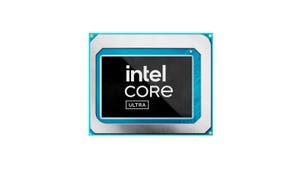Nokia has announced a host of new toys for digital transformation enthusiasts, aimed at helping organizations create their own private wireless networks.
September 7, 2017

Nokia has announced a host of new toys for digital transformation enthusiasts, aimed at helping organizations create their own private wireless networks.
The new capabilities focus around small cells, wifi connectivity, Multi-access Edge Computing and Cloud Packet Core capabilities, everything the digital-boffin will need to keep them quiet and entertained for hours; no temper-tantrums here.
Firstly, Nokia’s Flexi Zone Citizen Band Radio Service (CBRS) small cells will allow companies in the United States to leverage 3.5 GHz CBRS shared spectrum. These features offer compatibility with Spectrum Access Servers, which monitor and assign usage of available CBRS shared spectrum to ensure enterprises are using available spectrum in compliance with FCC regulations.
Secondly, it will launch a virtualized Multi-access Edge Computing solution, to allow enterprises to run MEC over commercial off-the-shelf IT servers. There are also some updates to the wifi, for non-business critical processes and applications, and finally, a multi-access Cloud Packet Core with a Hybrid Access Gateway will help serve companies operating in remote locations.
“We want to support the evolution toward the fourth industrial revolution by giving companies the ability to leverage private wireless networks for their critical communications needs and rapidly ramp-up business applications that improve efficiency,” said Thorsten Robrecht, Head of Advanced Mobile Networks Solutions at Nokia
“We continue to evolve our end-to-end solutions and services to allow enterprises to transition towards digitalization in a smooth and cost-efficient way in preparation for 5G automation in the future.”
What is interesting about these products is Nokia essentially saying ‘screw the operators’ to the larger organizations. By using Nokia products to create their own private networks, enterprise organizations are essentially by-passing the need to work more intimately with operators.
Some might argue this trend is already in place, but considering how many of the operators are customers of Nokia, some might point out this is a bit of a d*ck-move.Nokia might be unintentionally (or intentionally…) helping their most valued customers towards the role of utility and ‘dumb pipe’.
The removal of the need to deal with operators is not a new idea though. Companies like Equinix, who operate in the data centre interconnect world, have been doing it for some time. These companies essentially operate connections between private data centres, removing the need for enterprise organizations to ‘use the internet’ when shifting around information.
Such trends are reserved mainly for the larger and wealthier organizations of the world, but it does seem to be one which is growing. Equinix recently released research claiming Interconnection Bandwidth is expected to grow at a 45% CAGR to reach 5,000 Tbps by 2020. These numbers beat out global IP traffic trends in both growth (24%) and volume (855 Tbps).
Elsewhere in the Nokia world, the team has cloud-based online portal, which will aim to help customers create digital services and expand their cloud ecosystem.
The Nokia Developer Portal, which will be available in September, will provide access to products using APIs, which will enable third-party developers to build and test the interoperability of solutions with Nokia AirGile cloud-native core products. The hope here is that by opening up some corners, the speed at which product or services can be introduced to a commercial network will be increased.
“By applying the capabilities of our AirGile cloud-native core portfolio to the Developer Portal and Open Ecosystem Network, we can bring a host of market players together to dynamically develop compelling applications that the market has a real need for,” said Michael Clever, Head of the Cloud Core business at Nokia.
“Ultimately the communities will develop and grow a suite of tools and services that will enable the next generation of communications.”
About the Author(s)
You May Also Like







.png?width=300&auto=webp&quality=80&disable=upscale)

.png?width=300&auto=webp&quality=80&disable=upscale)
_1.jpg?width=300&auto=webp&quality=80&disable=upscale)



.png?width=800&auto=webp&quality=80&disable=upscale)